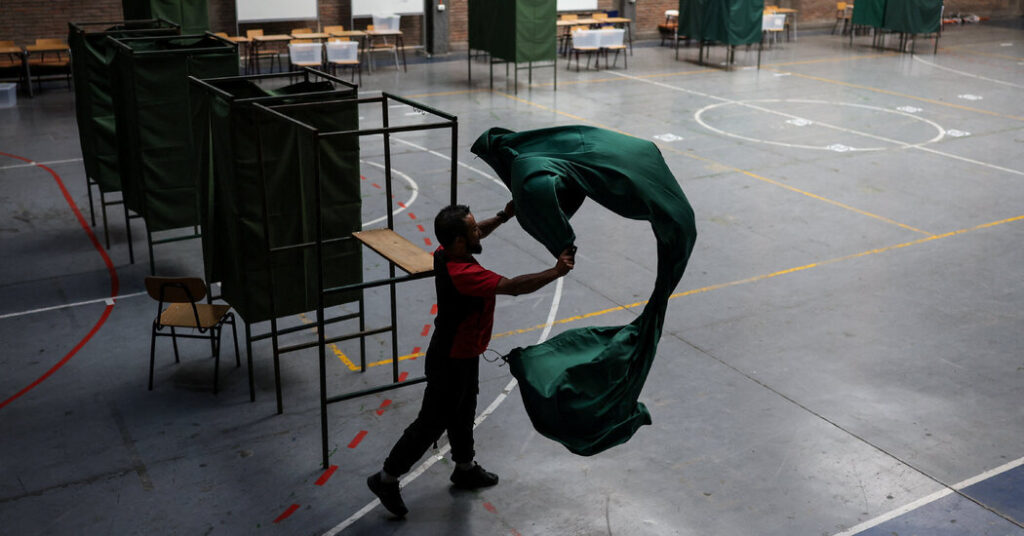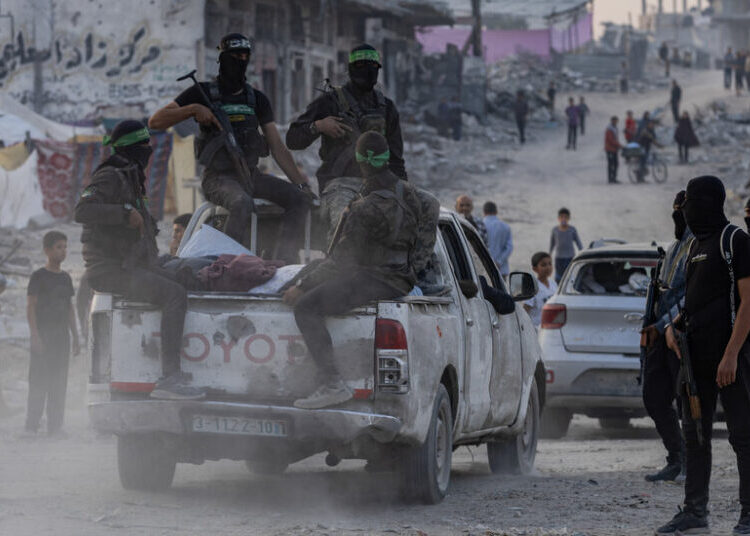As Chileans head to the polls in national elections on Sunday, the presidential candidates have been striving to outdo one another in promising harsh crackdowns on crime and immigration.
Drug traffickers should “go to jail or they will go to the cemetery,” said one, Evelyn Matthei. “Bullet or jail,” said another, Franco Parisi, as he deemed drug trafficking “narcoterrorism.” And a third candidate, Johannes Kaiser, proposed executions for certain crimes.
Yet, as the tone of the campaign was trending unmistakably to the right, a new mandatory voting law that is likely to bring millions of new voters to the polls is adding a layer of unpredictability to the proceedings.
Four years after Chileans elected Gabriel Boric, a young, progressive president many saw as the symbol of a new era for the Latin American left, the country now faces a deeply polarized electorate. Many voters are anxious over a surge in immigration and crime tied to transnational criminal networks, in what has long been one of Latin America’s safest countries.
The centrality of the issue — a core theme where the political right generally holds the advantage — has fueled the campaign of José Antonio Kast, the main conservative contender, who has borrowed liberally from President Trump’s playbook. But it has also helped the rise of Mr. Kaiser, who has positioned himself to the right of Mr. Kast, promising small-state liberalism and a tough hand on crime and immigration.
This weekend’s vote is expected to be the first of two rounds, as none of the candidates is likely to capture an outright majority. Polls show that the candidates with the best chance of making it to a runoff are Mr. Kast and — because the right-leaning candidates will split the conservative vote — Jeannette Jara, a Communist Party member.
Who are the candidates?
Mr. Kast, 59, a member of the Republican Party and the brother of a former minister during the military dictatorship of General Augusto Pinochet, is running for president for the third time. He emerged in 2017 as a right-wing candidate defending parts of Pinochet’s legacy and opposing abortion. This time, he set aside many of his most divisive proposals to focus on crime and illegal immigration.
Ms. Jara, 51, the Communist Party candidate, was a minister in Mr. Boric’s government. Many observers say her proposals are more in line with the center-left, reformist agenda embraced by Mr. Boric. She has promised to make pensions more generous, lower electricity bills and build tens of thousands of new homes.
Mr. Kaiser, 49, a former YouTube pundit elected as a lawmaker in 2021, has gained a following over the last four years with attention-grabbing posts online and in speeches in Congress. The founder of the National Libertarian Party, he has questioned Chile’s vaccination programs, opposed abortion and argued for a minimal state role in providing for citizens — including cutting the number of ministries. He has pledged to pull Chile out of climate accords and the Inter-American Court of Human Rights.
What do the polls say?
Recent opinion polls show Ms. Jara leading with about 30 percent support from voters, followed by Mr. Kast at 22 percent and Mr. Kaiser at 15 percent. Should that polling hold up, Ms. Jara would face Mr. Kast in a runoff vote next month, and political experts say the conservative candidate, Mr. Kast, is best positioned to inherit the vast majority of the votes of the other right-wing contenders.
“It is widely expected that Chile will be the latest in a series of countries in Latin America to shift right,” said Brian Winter, the editor of Americas Quarterly, following the path of countries like Argentina and Bolivia.
While Mr. Kast lost to Mr. Boric in the runoff four years ago, analysts say that this time the presence of a candidate to his right has helped him come across as more moderate, attracting more centrist voters.
“It looks like our second round will be between a Communist candidate and one from the extreme right who four years ago seemed unreasonable, but now seems reasonable,” said Eduardo Engel, an economist who advised Mr. Boric ahead of the runoff four years ago.
Chile reintroduced compulsory voting in 2023, which is expected to bring millions of previously disengaged — and politically unpredictable — voters to the polls.
“It is a huge change,” said Claudia Heiss, a Chilean political scientist. “It is an angry electorate.”
At a recent rally Mr. Kaiser asked how many were attending their first political event, or were becoming involved with politics for the first time. A multitude of hands shot up.
What are the main issues?
A rise in violent crimes associated with the expansion of transnational criminal networks has catapulted the issue of security to the forefront of the Chilean voters’ concerns. Polling showed that 63 percent of adults said violent crime was among their highest priorities.
“Chile did not use to be like this,” Gloria Romero, 67, a retiree from Santiago, said at a recent Kast rally in Santiago. “We are so unsafe and we are scared.”
At the rally, Mr. Kast described a country in a state of acute crisis, railed against criminals terrorizing the population and praised Chile’s security forces.
The following evening, Mr. Kaiser called for a minute of silence for police officers who had lost their lives in the line of duty.
Many among the right-wing candidates’ supporters also complained about illegal immigration from Venezuela. Since 2017, 711,000 Venezuelans have applied for residency in the country. Mr. Kaiser, for one, has said his first priority would be to expel all undocumented migrants.
Miguel Escarate, 68, a freight handler from Santiago and former social democratic voter, said he was going to vote for Mr. Kaiser so he can remove “all the foreigners in the greatest possible number” from Chile.
The Communist candidate, Ms. Jara, has said she plans to strengthen law enforcement capabilities in an effort to combat crime.
A clash of cultures
Ms. Jara and her right-wing opponents are offering radically different visions for a country that has long been viewed as a success story for neoliberal economic policies, with widespread deregulation and privatizations.
While Ms. Jara wants to increase an “active” role for the state in the economy, Mr. Kast and Mr. Kaiser are promoting the libertarian economic policies embraced by the Argentine president, Javier Milei, who came into office pledging to attack inflation by slashing government spending and transforming the country’s economy.
The candidates also have radically different views regarding the brutal military dictatorship that governed Chile from 1973 for nearly two decades, committing human rights abuses, and torturing and murdering people. Hundreds disappeared during that era.
While Ms. Jara has condemned the Pinochet dictatorship, some of her opponents have voiced a nostalgia for those times. Last year, Mr. Kaiser said he would “absolutely” support a military coup should the same conditions of economic chaos exist now as he says they did in 1973, when General Pinochet seized power.
Emma Bubola is a Times reporter based in Rome.
The post What to Know About Chile’s Election on Sunday appeared first on New York Times.




